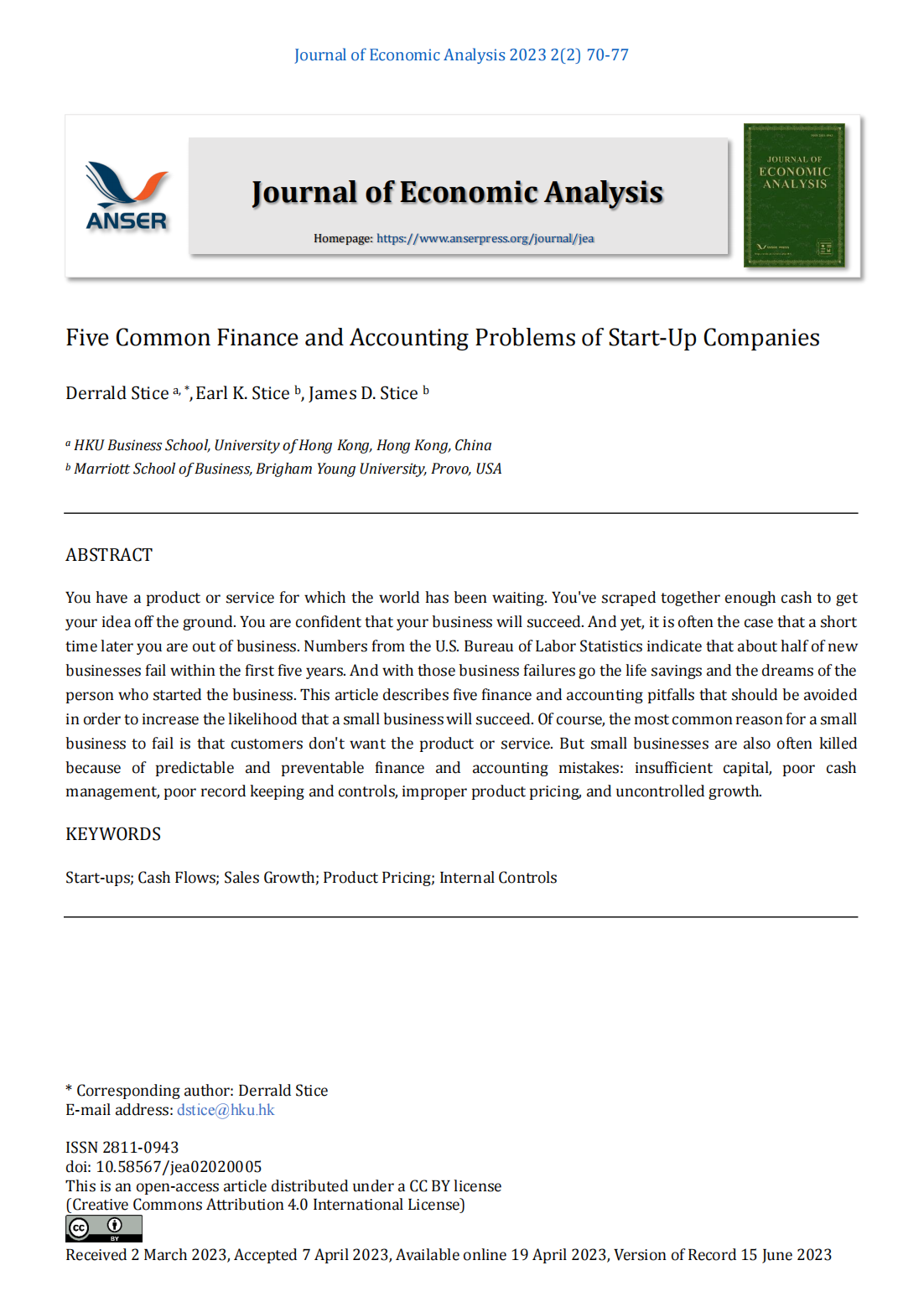Five Common Finance and Accounting Problems of Start-Up Companies
DOI:
https://doi.org/10.58567/jea02020005Keywords:
Start-ups, Cash Flows, Sales Growth, Product Pricing, Internal ControlsAbstract
You have a product or service for which the world has been waiting. You've scraped together enough cash to get your idea off the ground. You are confident that your business will succeed. And yet, it is often the case that a short time later you are out of business. Numbers from the U.S. Bureau of Labor Statistics indicate that about half of new businesses fail within the first five years. And with those business failures go the life savings and the dreams of the person who started the business. This article describes five finance and accounting pitfalls that should be avoided in order to increase the likelihood that a small business will succeed. Of course, the most common reason for a small business to fail is that customers don't want the product or service. But small businesses are also often killed because of predictable and preventable finance and accounting mistakes: insufficient capital, poor cash management, poor record keeping and controls, improper product pricing, and uncontrolled growth.
References
Albrecht, S. (2014). Iconic Fraud Triangle Endures. Fraud Magazine. July/August Volume.
Bianchi, C., and Winch, G. (2009). Supporting value creation in SMEs through capacity building and innovation initiatives: the danger of provoking unsustainable rapid growth. International Journal of Entrepreneurial Venturing 1(2): 164-1. https://doi.org/10.1504/IJEV.2009.029102.
Hmieleski, K., and Baron, R. (2009). Entrepreneurs' optimism and new venture performance: A social cognitive perspective. Academy of Management Journal 52: 473-488. https://doi.org/10.5465/amj.2009.41330755.
Kaplan, R. (1992). The evolution of management accounting. Published by Springer U.S. DOI: 10.1007/978-1-4899-7138-8_27.
Stice, D., Stice, E., and Stice, J. (2017). Cash Flow Problems Can Kill Profitable Companies. International Journal of Business Administration 8(6): 46-54. https://doi.org/10.5430/ijba.v8n6p46.

Downloads
Published
How to Cite
Issue
Section
License
Copyright (c) 2023 Derrald Stice, Earl K. Stice, James D. Stice

This work is licensed under a Creative Commons Attribution 4.0 International License.



